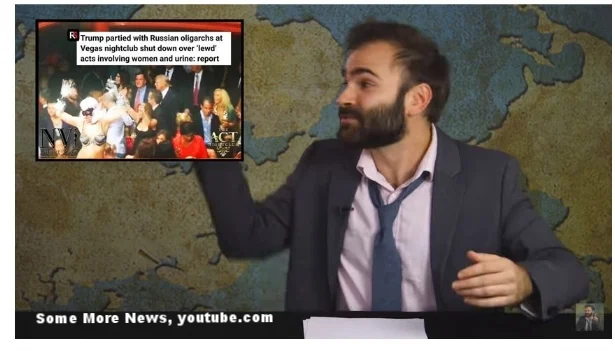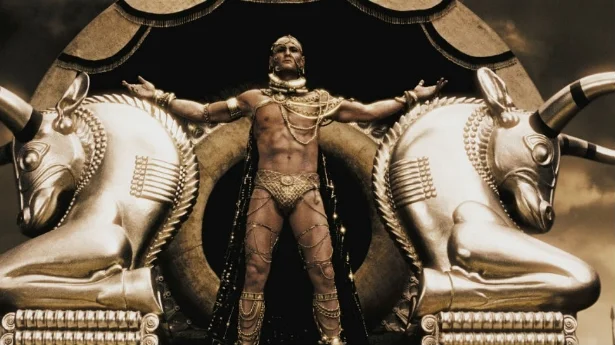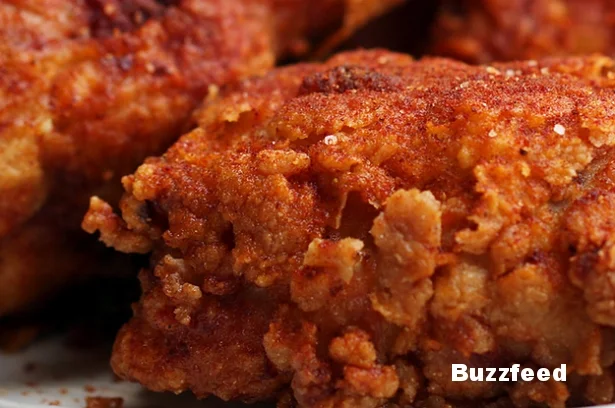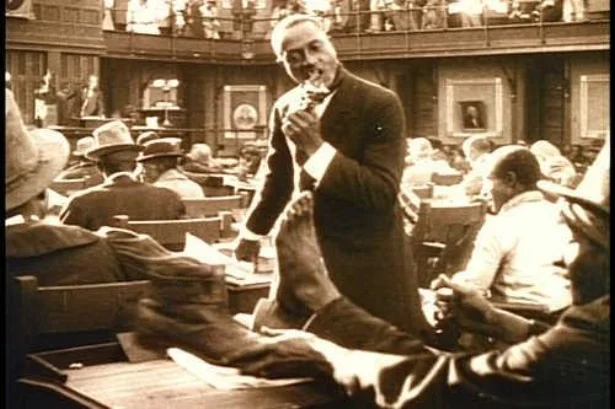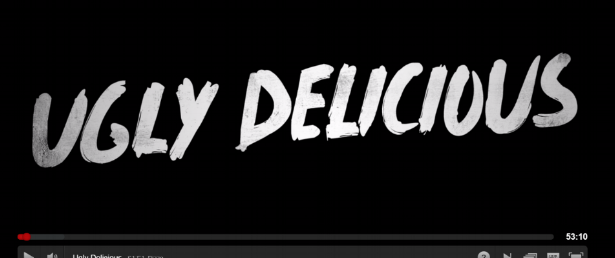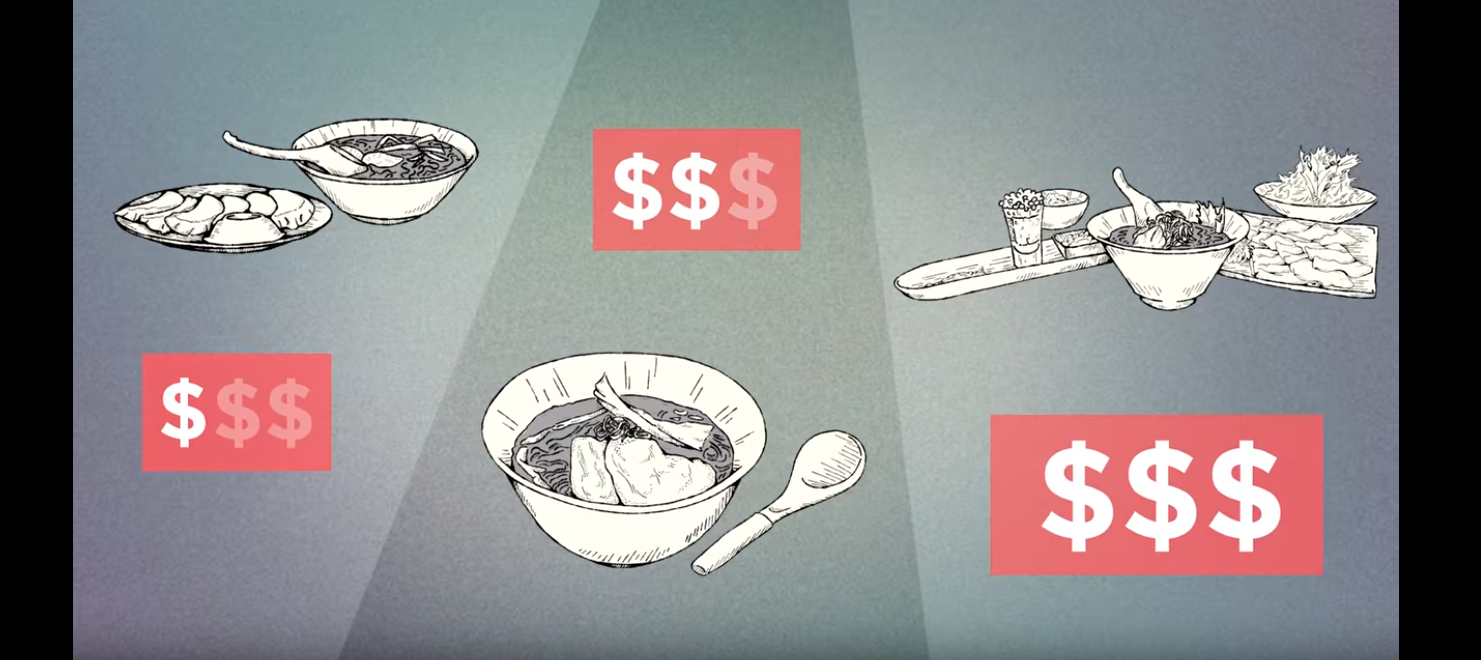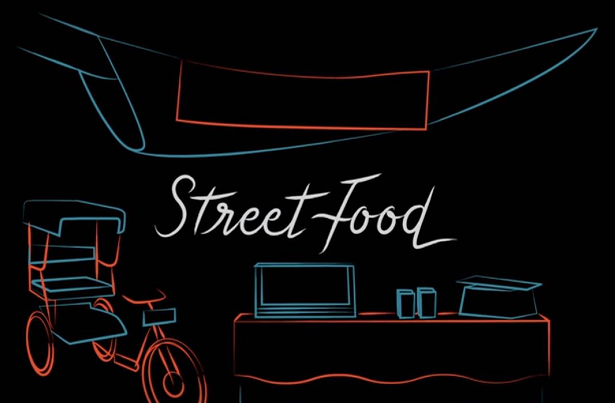A Catastrophic Conversation: On Criticism, and Food

This is the weirdest post I’ve ever really written on the site. So if it's too weird for you, I completely understand, and I apologize. To give you the context: Last week, of course, we talked about Buzzfeed’s “Worth It” video series. And, while writing the post, at the end I realied I had gone…really far afield. And VERY in-depth. I aim for around 2,000-2,500 words on the Monday posts, and around 1,600-2,000 on Thursdays. (the extra space is for the recipes themselves.) Last Thursday was right around 3,100 words by the time I was done. As such, I decided to pare the last 1,600 words off the post, and move them here, since they were more inspired by the discussion of Worth It than actually a part of it. So today, we’re going to talk about Criticism, what it adds, and what it means in the world of food.
When I looked at “Worth It”, there was one…complicated problem that stuck out to me. It was tied to a recent video from ANOTHER Youtube channel I watch, Patrick (H) Willems, a video essayist, primarily about film. I actually follow a lot of people who write about film theory and film criticism, because, as a theatre artist, a lot of the ideas are transferable, and also because I simply find it cool, because I’m a nerd. Something like 60% of the channels I subscribe to are critics of one medium or another. (Music, Film, Adaptations...)
One of them is, in essence, a critical analysis of the ongoing performance piece: "reality".
Anyway, Patrick, in a video posted last month, talked about a problem he saw with the current state of film criticism. Namely, modern audiences seem to follow YouTube film critics almost exclusively, and that YouTube film critics tend to not fully criticize the films they review. Sure, they offer detailed opinions about the writing, cinematography, acting, and so forth for the films they discuss, but they don’t go any further. By which, if that sounds like exactly what a critic does, I mean they don’t bring a discussion of technique, film/creator history, or anything else into play. And that, in his view, is a failing. He feels that the Youtube Critic genre is woefully lacking in truly critical discussion. So let's talk about what "critical discussion" should entail.
A Brief Stint on The Mediterranean
Let’s first dispense with the idea that ‘critics’ are some kind of hateful group of elitists who despise art. That’s bullshit. And I say this as a guy whose field has been criticized a LOT longer than yours. The Head of my Theatre department, a woman with a PhD in Theatre, told our Theatre History class that one of the first actual records of what could be inferred as a theatrical performance came from an Egyptian scribe some 4,000 years ago, who wrote “The priest who portrayed Osiris in the annual festival this year was not as good as the previous year’s.” I can find no proof this story exists, which may be why I don’t have a PhD and she does, but trust me: if anyone deserves to shit-talk critics, it’s the theatre kids. Y’all been talking shit since before Babylon fell, and we STILL haven’t stopped.
"Should we have stopped?" however, remains a valid critical question.
Criticism, true criticism, is a valid and necessary art form. Seeing broader contexts, and how art fits into them, can completely change the merits and discussion of a film. For better and for worse. Zack Snyder's 300 is a rip-roaring action movie I quite enjoyed when I first saw it, snuggled up next to a pretty girl at a movie theater in the autumn of 2006. Then, however, pointing out that it’s about "a Western leader who brings his country into war against a Middle Eastern enemy that “threatens their very way of life” in a manner that wasn’t quite legal, but turned out to be the right call in the end"…changes the context, when you're three and a half years into the Iraq War. On the other hand, in reality the Persians were more about human rights and democracy, and you can paint the conflict as “highly militarized young men willing to martyr themselves against a numerically and technologically superior force to mobilize their geopolitical neighbors to oppose and defeat their oppressors”…so, to paraphrase a reporter at Comic-con the next year: “is Leonidas supposed to be George W Bush or Osama Bin Laden?” That's the kind of question that criticism provokes. The answers aren’t easy, or even clear cut. And they come with baggage: the comic writer Frank Miller notes that he white-washed Spartan culture to keep them the Good Guys, and Zack Snyder openly stated he made Xerxes more sexually provocative and ambiguous to incite homophobic discomfort in straight male viewers. (“What’s more scary to a 20-year-old boy than a giant God-king who wants to have his way with you?”)
I am certain some young men were surprised to learn they were perfectly okay with the idea.
How do all of these facts influence the product? These are the questions true critics seek to discuss, and illuminate for the public, Patrick tells us. Not simply “it was good”, but “The action was great, but the narrative was definitely playing favorites, and twisting the facts, but for a simple summer blockbuster, it’s nothing to be too concerned about.”
Snap Back To Reality
“That’s great, Jon, and I’m really happy to hear that at least one time you touched a woman,” you interject, quite rudely. “But what,” you beg, “does any of this have to do with food?” Nothing, technically. Because it’s an analogy. Duh. That’s how they work. I explained the need to have criticism, and the issue with having critics who only give surface-level discussions. Now I relate that to the topic at hand. And, yes, in many ways, what Steven and Andrew do is simply give their surface-level assessments. They’re not trained cooks, or sommeliers, or anything like that. They’re two guys who work at Buzzfeed. And, given what I just said about criticism, isn’t that a problem?
Yes. Or it would be, if these people were critics. To me, this is a linguistic issue, not a scholastic one. When Patrick talks about the issue, he used a poll of his Twitter followers to see what critics they relied on for their reviews. And that right there is part of the issue. Reviews and Criticism aren’t technically the exact same thing. When Andrew and Steven go to Marcus Samuelsson’s Yard Bird in Harlem, are they there to discuss the fact that an Ethopian-born chef raised in Sweden is opening a fried chicken restaurant in Harlem, and what that means on a historical and sociological level? Have they ever tasted berbere spice before, a popular Ethiopian spice blend that my spell-check doesn’t recognize? No. They’re in New York, and they’re trying Fried Chicken. And that’s not their fault. They are gateways. They let you see techniques, and hear names, and if you care, you can research them.
Does this fried chicken look good? Then maybe it's time to learn who Marcus Samuelsson is, and what Berbere is, and how to cook.
Sometimes the path is easy: the most expensive Fried Chicken place is in "Worth It: Fried Chicken" is actually David Chang’s Momofuku, (I cannot escape him.) and David spends almost an HOUR talking about Fried Chicken and its complicated place in American cuisine on his show. Even IN the Fried Chicken episode (and almost every episode) each chef talks about their goals, their choices, and thereby writes their own critical analyses of themselves for the viewer.
Now, is my opinion colored by my own experiences? Of course. And it should not go un-noticed that I think it’s fine for the guys with no culinary training to give their thoughts on food…while writing a blog about food with no professional culinary training myself. Still, I think there’s a value to having both forms: the 15 minute video about New York fried chicken, and the hour-long discussion of Fried Chicken and Racism. The 7 minute “late-twenties white guy in his apartment” movie review, and the hour-long TruTV documentary about Apu are both tools, used for different moments.
Some of you just went "Oh, no. He's gonna talk about this too."
Others went "What? What is this about?"
I'm excited for both sets of people.
The 7 minute review is to help me decide if a film is worth 2 hours and $20 to see at the theater, while the analytic think-piece lets me consider the broader trends of the film industry, and gives me some interesting insight into racial difficulties. As a final sort of analogic aside: There is a line at the end of “The Problem with Apu” that really stood out to me, and I’d like to bring it up before we close, so SPOILER WARNING for a show that's been discussed A LOT in the last couple weeks. If you want to watch it first, it's only 49 minutes without commercials, and can be watched on their TruTV page.
This Section May Contain Blackface
The narrative core of "The Problem with Apu" is the director/lead actor Hari Kondabolu trying to secure an interview with Hank Azaria to talk about Apu, a character that Azaria voices, and Hari doesn’t like, (despite liking The Simpsons) because it’s a caricature of Indian immigrants, and it’s...untidy. (That's the "Problem" with Apu. Not that Hank Azaria is racist, or The Simpsons is "racist". Simply that Apu, as the only major Indian character on television for 20+ years, had a weird and exaggerated cultural effect, with negative aspects that have affected the lives of thousands of Indian/Bangladeshi/Indonesian...all South-East Asian immigrants and Americans of that descent.) In the end, he does not get the interview. Hank sends him a letter saying roughly, ‘Thank you, the movie sounds great, but I can’t participate, partly because:’ and this IS a quote: ”I don’t want to put myself at the mercy of your edit.” To which Hari says, with some frustration in his voice “It’s great that he gets to choose how he wants to be portrayed. What a privilege. He gets to choose how he is viewed by other people.”
And that moment, that line, really made the issue of representation in media hit home for me. The idea that the longest running, most famous Indian character in American television is voiced by a white guy, impersonating another white guy (Hank Azaria’s Apu voice is based off of Peter Seller’s Hrundi Bakshi, a Mr Magoo-esque bumbling incompetent), whose thoughts, needs, and emotions are decided by white writers. That’s the problem with Apu. Not that he’s racist, or needs to come off the show: that he’s represented Indians in America for decades, despite never actually had an Indian voice inside him. Imagine if the only Irish person on television for the last 20 years had been the Lucky Charms Leprechaun. People would definitely believe that I care a lot more about breakfast cereal than I do.
Interestingly, two days before today's post, so ~5 days after I first wrote those lines, Hank Azaria said on national television that he does understand the problem, and hopes that, moving forward, actual Indian voices (whether in the writer's room or recording booth.) are involved in the creation of Apu segments.
Because, remember, the problem isn't Hank, or The Simpsons, it's just...everything else, really.
That’s the ability of criticism to expand the scope of a show, or a movie, or even...a meal. For instance, to give a more focused food-based example, I looked it up, and I can tell you why Americans consider Fried Chicken “black people food”. It started because it was illegal for slaves to raise any other kind of livestock than poultry. They were forbidden to raise pigs, horses, or cattle. (George Washington even forbade Geese and Ducks) But they could raise chickens, and sell the eggs or meat in the hope of earning enough to buy their freedom. Decades later, It was also a prominent prop in showing why Black People couldn’t be allowed in State Legislature in the (in)famous film “A Birth of a Nation.” The first blockbuster of American cinema showed black men in Congressional Halls drinking hooch, putting their bare feet on the desks, and one guy's ENTIRE ROLE was to stand, prominently, center of the camera, and gnaw on a fried chicken leg. So...yeah. That's where the "black people love fried chicken" idea comes from.
D.W. Griffith was, above all else, a subtle man.
Also, like, 65% of the black people in Birth of A Nation were white guys in blackface, and I can't tell if there are or aren't any in this shot. I also can't tell if that makes it better or worse.
Moving back to my earlier point, just as I don't think every film reviewer and critic need to be held to the same standard, I don’t think that EVERY food critic needs to have a degree and years of experience in the field to be a voice worth listening to. I think SOME of them should be, in order to better help us understand the implications and history of what we’re eating. Because it is through learning that we better ourselves. And as we better ourselves, we should hope to better the world with us. But sometimes, you just wanna know if a $6 Hot Dog is really worth it.
And that’s that. Like I said, it was a LOT of thoughts, and I wanted to talk about it, and…well, no one can stop me.
If you think Jon’s half-baked good intentions deserve some kind of support, or want to pay for meds to make sure such rambling never happen again, check out our Patreon page, where you can support the site for only $1 a month. If you think more people should talk about this, or mock him for his poorly-phrased bullshit, share our posts, and invite your friends to like us on Facebook.
MONDAY: JON TAKES POTATOES AND PARM AND PUTS THEM TO WORK IN A SIDE WITH SOME SNAP.
NEXT THURSDAY: JON KICKS OFF “MASH-UP MAY” WITH A DISCUSSION OF WHAT EXACTLY “FUSION” CUISINE IS.

